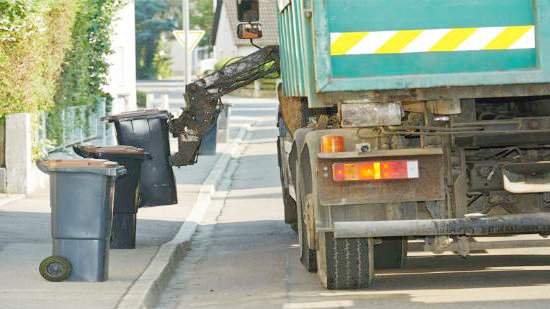Lucas Ledwaba
Already crippled by non-payment of services and poor governance – municipalities are set to endure further revenue losses resulting from the COVID-19 lockdown.
The SA Local Government Authority said in a presentation outlining its respond to the covid-19 pandemic to parliament this week they are expecting a 5% drop in payment rates which will cost an estimated R14 billion.
Local government has been the focus of attention for poor delivery government in the current financial year which resulted in President Cyril Ramaphosa launching the Khawuleza District Development Model.
The model which will be applied across all 44 districts and eight metros effectively allows national government to get more hands on in implementation of projects at municipal level.
The intervention came at a time when audit results showed a further decline in performance by municipalities.
Last year auditor-general Kimi Makwetu revealed that the number of clean audits in municipalities declined from 14% in the previous financial year to 8% and only 18 got clean audits.
Now SALGA which oversees and helps in the running and capacity provision of its 257 municipalities has painted a gloomy economic future for the sector post the COVID-19 lockdown.
“Lockdown will result in job losses and reduced income, this will ultimately impact on municipal revenues,” the body said in its presentation to the portfolio committee on cooperative governance and traditional affairs.
The SA Reserve Bank has warned that the country could lose at least 370 000 jobs this year as a result of the covid-19 outbreak.
The International Labour Organisation said this week some 1.6 billion people – or nearly half the global workforce – could see their livelihoods destroyed due to the lockdowns to curb the spread of COVID-19.
Job losses may result in failure to pay for services which may in turn cripple municipalities further.
SALGA cited reduced revenue collection levels that will lead to an inability to meet financial obligations; reduction of revenue from water and electricity due to reduced consumption because of among others closure of companies and businesses.
It also identified the loss of revenue from rental of municipal facilities due to the lockdown as one of the factors leading to a decline in revenue collection.
It said for the 2020/21 financial year the revenue collection ratio will decline in many municipalities for the remaining period till 30th June 2021.
“Sales will fall over the entire period and corresponding bulk purchases will also drop,” the authority said.
SALGA cited the deployment of water tanks by national government as a welcome intervention in water starved communities during the lockdown period but said this added a financial burden on municipalities.
“The challenges are too big to resolve with the provision of water tanks and tankers. Tanks and tankers are logistically difficult and extremely expensive; costing in the region of R100 million per month.
“Costs are particularly high in dispersed rural communities. Use of tanks and tankers: place a massive logistical management and financial burden on municipalities; have also raised expectations within communities which are not sustainable and – must be regarded as Interim
Solutions.”
SALGA said the deployment of water tanks and tankers placed municipalities under financial obligation to provide the free water and this creates a much bigger risk of sustainability beyond the crisis.”
The authority said its NEC has resolved that although municipalities must introduce measures to collect as much revenue as possible, the disconnection of water and electricity should be suspended for the duration of the lockdown period.
It said Eskom should be engaged to suspend all electricity disconnections for the duration of the lockdown and review the interest payable on arrears caused by and linked to the national state of disaster and the lockdown.
However Eskom has said it will consider requests for a payment on merit of each case.
Ramaphosa announced during April that additional funding of R20 billion will be made available to municipalities for the provision of emergency water supply, increased sanitisation of public transport and facilities and providing food and shelter for the homeless during the COVID-19 crisis.
But members of the parliamentary portfolio committee on cooperative governance and traditional affairs raised concern about how the department of cooperative governance and traditional affairs planned to ensure the funds were not misused.
Committee members raised concern during a virtual presentation by Deputy Minister Parks Tau over the sector’s notoriety of corruption and financial mismanagement.
Tau said the department is considering dispensing the money to municipalities on a monthly basis in a bid to introduce controls and counter mismanagement.

